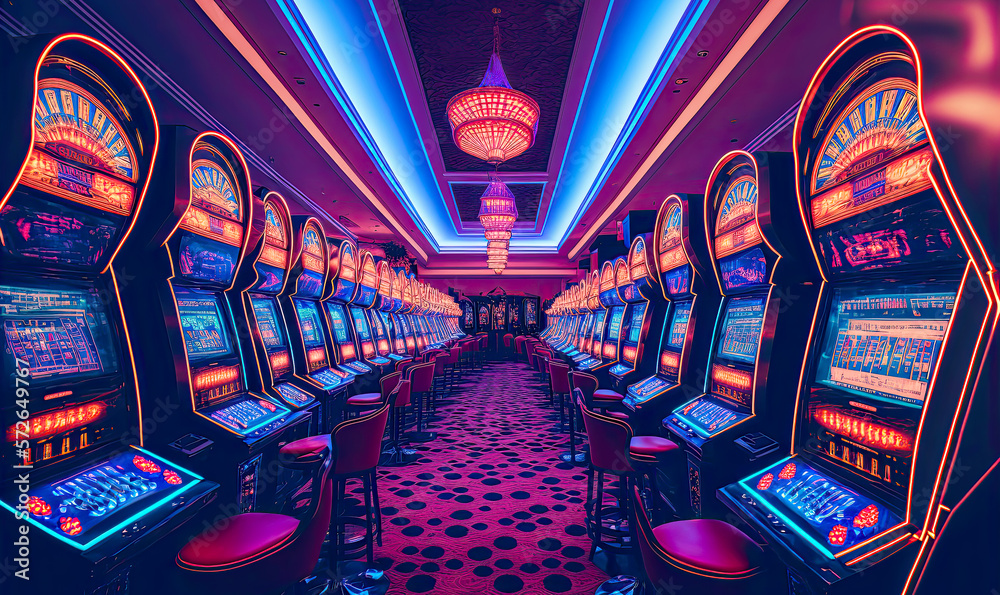Gambling Games and Their Impact in Pop Culture

Casino games have long captured the imagination of individuals around the planet, becoming an important part of both fun and tradition. From the shimmering lights of Las Vegas to the captivating experience of online gaming, these experiences evoke enthusiasm, danger, and sometimes even a sense of remembrance. They are more than just entertainments; they have woven themselves into the tapestry of society, influencing various aspects from cinema and songs to style and literature.
The appeal of casino games transcends the betting aspect, tapping into larger themes of serendipity, risk, and human behavior. As players gather around a gaming table or rotate the roulette wheel, they engage in an ancient ritual that echoes with our collective desire for excitement and unpredictability. This captivation has led to the rise of countless references in films, songs, and electronic games, showcasing how strongly entrenched these pastimes are in pop culture. Whether it is the high-stakes tension of a classic heist movie or the vibrant nightlife portrayed in music videos, casino games have carved out a substantial role that reflects our relationship with reward.
Social Impact of Casino Activities
Casino games have played a crucial role in social aspects throughout the ages. Originating from ancient societies, games of chance were often connected to ceremonies or gatherings. For instance, early forms of these activities can be traced back to ancient Chinese and the Romans, where dice games and betting on results were popular pastimes. These games not only functioned as entertainment but also as means of connecting people, facilitating relationships among people within communities.
As societies evolved, so did the sophistication and structure of gambling games. The establishment of formal casinos in the 17th century, particularly in Italy, marked a notable shift in how games were perceived and structured. With specific spaces for gambling, the casino became a social hub where patrons from different backgrounds convened. This evolution contributed to the legitimization of gambling, transforming it from a mere pastime into an organized industry that shaped the economy and regulations.
The impact of gambling games on mainstream culture cannot be overlooked. As they were brought into the limelight in books and movies, games such as Texas Hold’em and blackjack became symbols of risk, chance, and strategy. Famous characters and stories have emerged around these activities, reflecting societal attitudes towards fortune, prosperity, and vice. This fascination with gambling activities has permeated various forms of entertainment, cementing their place in the collective consciousness and linking them to broader cultural narratives throughout the ages.
Depiction of Casino Games in Entertainment
Gambling games have long been a popular topic in various forms of media, reflecting both the fascination and intricacies of gambling culture. Films such as Ocean’s Eleven and Casino Royal portray figures who navigate dangerous scenarios, showcasing not only the attractiveness of the gambling environment but also the tactics and judgments that come with playing popular games like Texas Hold’em and 21. These movies often dramatize the thrill of winning and the potential results of losing, encapsulating the risks involved in gambling.
TV programs have also explored the universe of casino games, often integrating them into the narrative as a backdrop for story progression and conflict. Shows like Vegas depict the experiences of gambling employees and customers, highlighting the vibrant, often tumultuous energy of the casino floor. Docuseries featuring high-stakes gambling competitions further emphasize the appeal of casino games, drawing viewers into the tension and planning involved in each round. Through these representations, media not only engages but also prompts conversations about fortune, skill, and the essence of chance.
Digital games have increasingly integrated casino games into their structure, allowing players to simulate the thrill of betting without financial risk. Titles within the landscape of online gaming often include online slot machines, poker, and other popular casino games, creating an interactive experience that mirrors real-life gameplay. These virtual portrayals make gambling activities accessible to a broad demographic, appealing to both gamblers and those who enjoy the excitement of simulation. As a consequence, the portrayal of casino games in media continues to shape public perception and cultural significance, highlighting their place in society and the cultural landscape. cpc2888
Effect of Gambling Activities on Society
Gambling activities have a significant effect on society, influencing various facets of culture and social behavior. They often serve as a platform for community engagement, where people gather to experience a common experience. Casino trips with friends or trips to casinos become social activities that foster connections and create memories. This communal aspect boosts the fun value of gambling activities, making them a favored choice for festivities and recreational pursuits.
Additionally, casino games have been depicted in countless films, TV series, and literature, shaping perceptions and opinions towards gambling and gaming. Icons like James Bond competing in baccarat or the high-stakes poker scenes in films have embedded these games in the shared imagination. This representation often glamorizes the culture associated with gambling, attracting new players and impacting trends in both style and conduct. These representations can spark curiosity and lead to a deeper investigation of the intricacies of gaming.
Nonetheless, there are also negative consequences associated with the popularity of gambling activities. The allure of quick monetary gain can lead to problem gambling and financial troubles for some individuals. Society must grapple with these consequences, promoting responsible gaming and awareness of the dangers involved. Finding a balance between the entertainment value of gambling activities with the risks is vital to ensure that they remain a beneficial aspect of our societal fabric.
